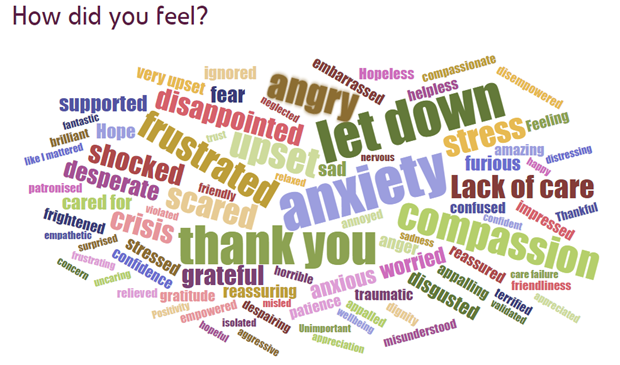
On every World Mental Health Day we hear a lot about challenging stigma generally, but it can be worthwhile demonstrating how this stigma manifests in the real world. 10 years ago Harry Enfield and the DWP produced an excellent illustration of how people with mental health problems are perceived.
The sad fact is that even today we would all probably face a similar thought process, concealed or otherwise, if we were to disclose something like depression in an interview. On the surface its even understandable. After all, all things being equal why would an employer choose an employee with a mental health problem over a seemingly healthy applicant?
In 1973 a psychology professor at Stanford University wrote a famous paper ‘on being sane in insane places’ where he and seven of his associates had themselves admitted to different psychiatric hospitals by saying they heard a voice saying ‘empty’, ‘hollow’ and ‘thud’. Once in they never mentioned any other symptoms, or claimed to still hear the voices, and otherwise behaved normally. The objective was to see if the hospitals could tell when someone was healthy if they had been labelled as ill, and ultimately none of them were able to be discharged without agreeing to a diagnosis and being prescribed antipsychotics. This is what we mean by stigma – once someone sees you as unwell you will never look well to them again.
This is the unique challenge of mental over physical illness. If you break your leg it is no longer said to be broken once it has healed. Can the same be said of depression or schizophrenia? Is this the reason why it is common for someone with a mental health problem to conceal it for fear of being viewed through this prism of diminished mental competence?
When it comes to person-centred mental health care we need to listen to patients about how this can be improved, but this means challenging the belief that their judgement is compromised by an impaired capacity for rational reasoned thought. Reading the stories told here on Patient Opinion is a great place to learn how we can make mental health care better, and what we’re already doing well. With 17% of adults experiencing a mental health problem each year, the sad reality is that most of us will need help at some point in our lives and will want our voices heard and valued by mental health services, without being seen as an unreliable narrator. Mental health awareness might mean forgetting someone has been ill from time to time.
Would you recognise a healthy person when they've been mentally ill?
Would you recognise a healthy person when they've been mentally ill? https://www.careopinion.org.uk/resources/blog-resources/4-images/1a8fe9822d1b44059d7d09a04b91f42e.png Care Opinion 0114 281 6256 https://www.careopinion.org.uk /content/uk/images/logos/co-header-logo-2020-default.pngUpdate from Care Opinion Scotland
Posted by Ben Simmons, Development and Engagement Officer, Care Opinion Scotland, on
Thanks for your feedback.

